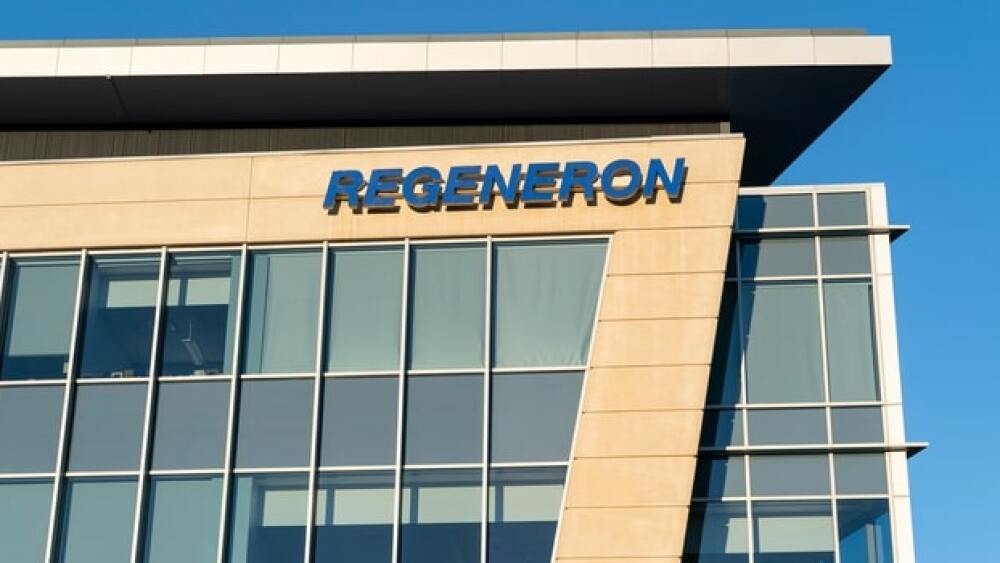REGEN-COV’s 1,200 mg dose is authorized to treat mild-to-moderate COVID-19 in adults and children 12 years and older who weigh 40 kilograms or more.
lev radin/Shutterstock
The U.S. Food and Drug Administration (FDA) updated its Emergency Use Authorization (EUA) for Regeneron Pharmaceuticals’ REGEN-COV for a lower dose of 1,200 mg, half of the original authorized dose. REGEN-COV is a cocktail of two monoclonal antibodies against SARS-CoV-2, the virus that causes COVID-19 — casirivimab and imdevimab.
The cocktail is authorized to treat mild-to-moderate COVID-19 in adults and children 12 years and older who weigh 40 kilograms or more. They need to have had a positive direct COVID-19 test and are at high risk for progression to severe disease, including hospitalization or death.
The updated authorization was based on several clinical trials, including the Phase III trial the company recently announced that demonstrated the cocktail decreased the risk of hospitalization or death by 70% in high-risk, non-hospitalized patients. It also was consistent between the 1,200 mg and 2,400 mg doses.
“Despite increased use of vaccines, thousands of patients are still becoming infected in the U.S. every day, with many at high risk of serious complications from COVID-19,” said George D. Yancopoulos, president and chief scientific officer of Regeneron. “Unfortunately, to date, only a fraction of patients eligible for antibody treatments have received them, which we hope will change based on this updated FDA authorization.”
Yancopoulos added, “REGEN-COV is readily available and supplied free of charge by the U.S. government.” It also appears to be effective against variants first identified in Brazil (Gamma) and South Africa (Beta).
A competing product is Eli Lilly’s combination antibody of bamlanivimab and esesevimab. In mid-April, Eli Lilly requested the FDA revoke the EUA for its single antibody COVID-19 product, bamlanivimab, sometimes referred to as BAM. The monotherapy was less effective against the Gamma and Beta variants and the growing B.1.427/B.1.429 California variant (Epsilon).
The combination cocktail is more effective against variants. The withdrawal only applied in the U.S. It had no plans to withdraw its emergency authorization for BAM alone in other parts of the world at that time. It is authorized by way of special pathways in 20 countries outside the U.S.
According to Regeneron, more than 9,000 patients have received intravenous REGN-COV in trials in both hospitalized and non-hospitalized situations. In a pooled analysis of Phase I/II/III trials of non-hospitalized patients, infusion-related side effects greater than grade 2 were only observed in 0.2% of people receiving the higher dose of the antibody cocktail.
The company plans to submit a complete Biologics License Application (BLA) for REGEN-COV to the FDA for non-hospitalized outpatients with COVID-19. The cocktail is also being studied in the prevention and specific hospitalized COVID-19 patient settings.
In April of this year, the company reported positive data from a Phase III trial of the antibody product for the prevention of infection in household contacts of infected people. The data has been submitted to regulators to possibly expand the EUA for that setting.
Under Regeneron’s contracts with the U.S. government, the government will acquire all REGEN-COV doses delivered by June 30, 2021. They may also accept additional doses through September 30, 2021, up to a maximum amount of 1.25 million doses. The company says it expects to deliver at least 1 million doses to the U.S. government in the second quarter.
Featured Jobs on BioSpace





